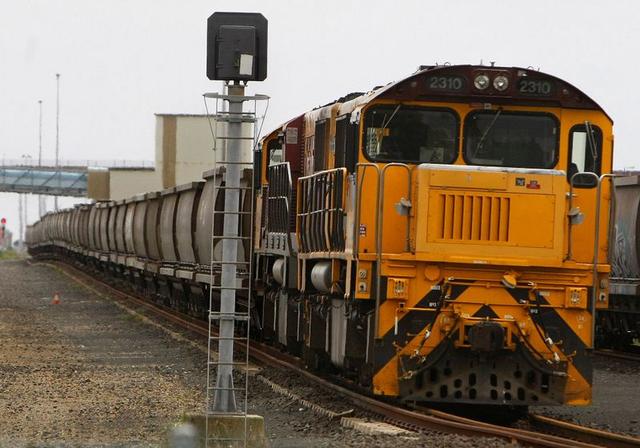
(Reuters) – Australian Prime Minister Scott Morrison said any shift by China away from importing high quality Australian coal would be a “lose-lose” for the environment and their trading relationship.
Chinese media on Monday reported that China’s top economic planner had granted approval to power plants to import coal without clearance restrictions, except for Australia.
Coal is the third largest export from Australia, which is in a diplomatic row with China, its largest trading partner, which imposed trade reprisals after Canberra called for an international inquiry into the source of COVID-19.
Australia on Tuesday urged China to clarify the reports in outlets including The Global Times and Caixin, saying if they were true any restrictions on Australian coal would be in breach of World Trade Organisation (WTO) rules.
Wang Wenbin, a spokesman of China’s Ministry of Foreign Affairs, told a news briefing on Tuesday that he was not aware of the specific situation, when asked about the reports.
“The competent authority on the Chinese side has been adopting relevant measures on imported goods from Australia in accordance with law as well as international practices.”
“It’s also a responsible way to protect Chinese consumers and customers,” Wang added.
China’s National Development and Reform Commission and General Administration of Customs did not respond to requests for comment from Reuters.
Australia’s Morrison said a shift away from Australian coal imports would be “a bad outcome for the environment”.
“It really is a lose-lose here because Australian coal, compared to that coal that is sourced from other countries, the other countries have 50% higher emissions than Australian coal,” Morrison told media outlets.
Although A$4 billion of A$13 billion ($3 billion of $9.8 billion) in thermal coal exports went to China, it was not Australia’s largest customer, said Morrison.
Shares of Australian pureplay coal exporters fell, with New Hope Corp Ltd and China-controlled Yancoal Australia Ltd down 12% , while Whitehaven Coal Ltd was down 9%, against a slightly weaker overall market.
Diversified mining giant BHP Group Ltd, which has coal mining interests, was down 2.5%.
‘DISRUPTION’
Trade Minister Simon Birmingham said there had been “a pattern of disruption” of trade with China, and vessels had been delayed in offloading Australian coal.
Australia has raised concerns at a WTO meeting about China taking measures against its barley, wine, meat, dairy, live seafood, logs, timber, coal and cotton.
Beijing’s opaque action in the resources sector involved “disruption through use of state influence with different companies”, Birmingham said on Tuesday.
Wang said on Tuesday that Australia was politicising trade, investment and scientific issues.
“It has gone so far down the wrong road,” Wang said.
Minerals Council Australia chief executive Tania Constable said the success of Australia and China’s trade in minerals relied on a “rules-based trade system” and urged a restoration of stability to the relationship.
The Chinese embassy last month outlined grievances about restrictions on investment in Australia, and criticism of China by parliamentarians and the media.
Morrison said Australia was a liberal democracy and his government would not back down.
“If a perception emerges that there is a conflation between political issues and a trading relationship… That can create a lot of uncertainty for many other trading partners,” he said.
Australia’s thermal coal exports are expected to hold up relatively well because buyers were being found in South Korea, Vietnam and Japan, ANZ commodity strategists Daniel Hynes and Soni Kumari said in a research note.
Australia is the top iron ore supplier to China, whose steel producers called on the market regulator to investigate a recent jump in prices and crack down on any wrongdoing.
Birmingham said “prices of commodities like iron ore respond to the basic economics of supply and demand, and the supply from other parts of the world has been disrupted this year”.China should allow businesses to operate according to market principles, he added.






